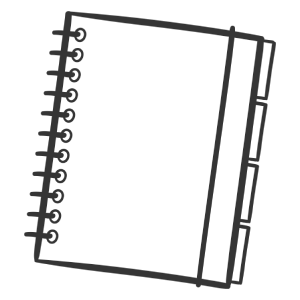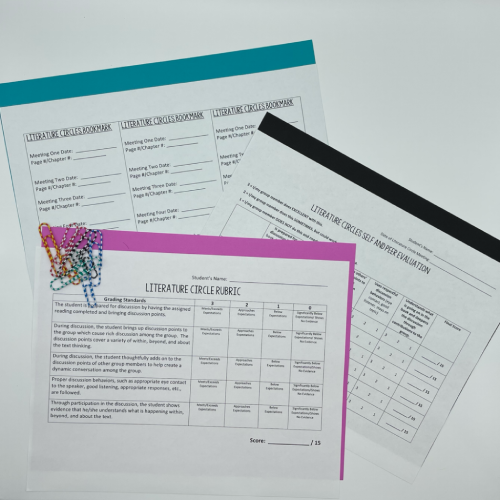Although I did get in a little shopping and picked up a few things that I really liked in Boston, this is probably my favorite:
Do you ever get that feeling where you learn so much that your mind is spinning and you feel the equivalent to being “food full” to being “knowledge full”. That’s the point that I’m at right now. Always after being at training weeks at Lesley University I feel this way, it never fails me. I feel like every bullet that I write below could be separate blog entries, and maybe in the coming weeks I will do a few blog entries to go into more detail with some of them but below are my big takeaways from a week at Lesley with ALL of the intermediate and middle school trained literacy coaches together at once:
- The Writing Process: We had a session this week on the writing process. I realized that the writing process, once again, is something that I’d like to learn more about in order to better help my students become proficient writers. We dug into a text by Carl Anderson (amazing author by the way) called, Assessing Writers and used it as a basis to discuss the writing process. A few things that I learned from this session are that the writing process is messy. We tend to teach students that first you draft, next you revise, followed by editing, followed by publishing. However, our conversation got into how as writers ourselves, we use the process in order to create a final product, this may mean going back and forth from one step to another and GOD FORBID, in the wrong order! 🙂 The writing process should be seen as circular, and not in the linear way that we so often set it up in our classrooms and fluent instead of mechanical. Another huge thing that I took away from this session and is that teachers need to own the writing process themselves and model the “messiness” of the process that I mentioned above. I am a bit obsessed with teaching writing to students, so I know I’ll come back to this topic at a later time.
- Continuous Assessment of Students During Guided Reading: Another of our sessions focused on using more running records for continuous data at the middle school level during guided reading. I know that as a teacher who is just beginning to dig into guided reading at the middle school level, the thought of doing running records on a daily basis is scary and seems impossible. My professor recommended picking one child from the guided reading lesson and doing a running record based off of a run-off copy of 2 pages out of a guided reading text they read the previous day. I would do a running record, coding errors, self-corrections, noting fluency, and having a quick comprehension conversation at the end to get an idea of the student’s comprehension for within, beyond, and about the text. I would then make a quick, two-column chart titled “Strengths” and “Next Steps.” Then for the following day or guided reading lesson with that group, I would plan the lesson based off of what I learned about that one student at that one moment in time. I would then take turns with each of the members of my guided reading group doing this. This is true differentiation, working with a small group in guided reading, focusing in on the specific needs of the members of the group at different points in time while still keeping the whole group in mind. I’m going to give this a try when I get back to Rice Lake!
- Genre Study: One of our main focuses this week was digging into the new Fountas and Pinnell text, Genre Study: Teaching with Fiction and Nonfiction Books. I’m still trying to wrap my mind around this amazing new resource and can’t wait to get my teachers a copy of this text, which we will probably start to dig into during our ongoing professional development this year. A few things that I will say about genre study now are that using an inquiry approach to studying genre will bring students to form their own understanding of the gnre and get to explore it further through reading and writing. Also, the more students know about how specific genres work, the more they will be able to access the reading processing strategies (solving words, summarizing, searching for and using information, making connections, predicting, synthesizing, critiquing, and analyzing) in a fluent manner, utilizing multiple processing strategies at once. MUCH more to come on genre study. I’m very excited about it and feel that it’s perfect for middle school students.
- Irene Fountas on Close Reading of Information Texts and her views on the CCSS: I had the absolute pleasure of being part of Wednesday’s session, where Irene presented to us the entire day. 8 hours of class literally just flew by. When the day was over I was honestly disappointed because she is that interesting to me when she talks. I took over 10 pages of notes from the day because I tried to write down everything that struck me that she said. There were obviously many things! One item that Irene addressed was how teachers/schools/states are reacting the the Common Core State Standards. She made it clear that standards are goals and with goals there are holes. She also said something that I found quite profound and that was, “Anytime you over emphasize one thing, you neglect the other.” It’s so easy in the education system to jump on the next new thing that comes out, but it’s important for me to remember what I know about the reading and writing process and how students learn how to read and write. My work should not change. If I work my work, the Common Core State Standards will be taken care of as well. I’m confident of that. The bottom line is what is effective with the children! Also, if you work on the cutting edge of a child’s learning, you will enable them to synthesize their new learning and move their learning forward (guided reading does this). Another big idea from Irene was the idea of a close reading. A close reading would be to have students looks back to passages, sentences, or pages from the text to consider the purpose, organization, and the big idea. I was amazed by engaging in this process as a reader. It really showed me how deep we can get into texts in order to help readers find the big ideas. It’s a great reminder every once in awhile to go from teacher to student and walk in the shoes of what we’re asking our students to do. Some amazing nonfiction titles that we worked with and were shared out in our group were: The Wolves are Back, Heart and Soul, Just a Second, Bridges are to Cross, Sit In, and Coming on Home Soon. I could go on and on about how amazing this day of training was, but I’ll stop.
- Data Specialist Presentation: Lesley University has their own data specialist. I wish that Rice Lake did, too! She came in to talk to us about how to show and use data in relation to our Literacy Collaborative program at our schools. One of my main take aways from this is that when reporting data, you must be clear to what extent your school is implementing the program. Once I do some data reports for Rice Lake (I present at a board meeting in two weeks) I look forward to sharing some ways that I’ve dug into the reading and writing data at our school to show and monitor student progress.
- Other: I also got some great ideas this week on how to work with content area teachers in literacy. This is so huge for middle school, and I’m hoping that next year this is something that I’ll be able to take on. Also, I got some great ideas about how to work with my colleagues during coaching sessions and focusing conversation on observable data.
Although my week included a lot of thinking and learning, I also had a lot of fun! Boston is an amazing city, and I have so enjoyed exploring it over the last year and a half with some awesome ladies that I’ve met through Literacy Collaborative training at Lesley. The highlights of our week included taking in a Celtics game and finishing up our week at Howl at the Moon, a dueling piano bar in Boston.
I thought that it would be awhile before going back out to Boston again, but this week, Irene Fountas asked me to be part of a group through Heinemann publishing company working on publishing the teal LLI kit. They’re going to fly me out in early February for the weekend. I feel so so lucky to have had this opportunity because it has opened doors that I would never have dreamed of a year and a half ago. No complaints! Have a GREAT weekend everyone!
Kasey








